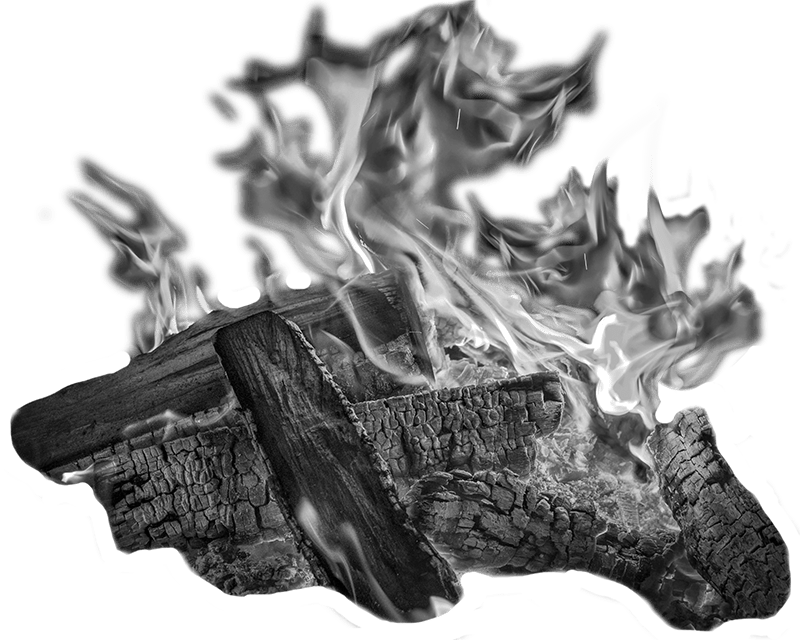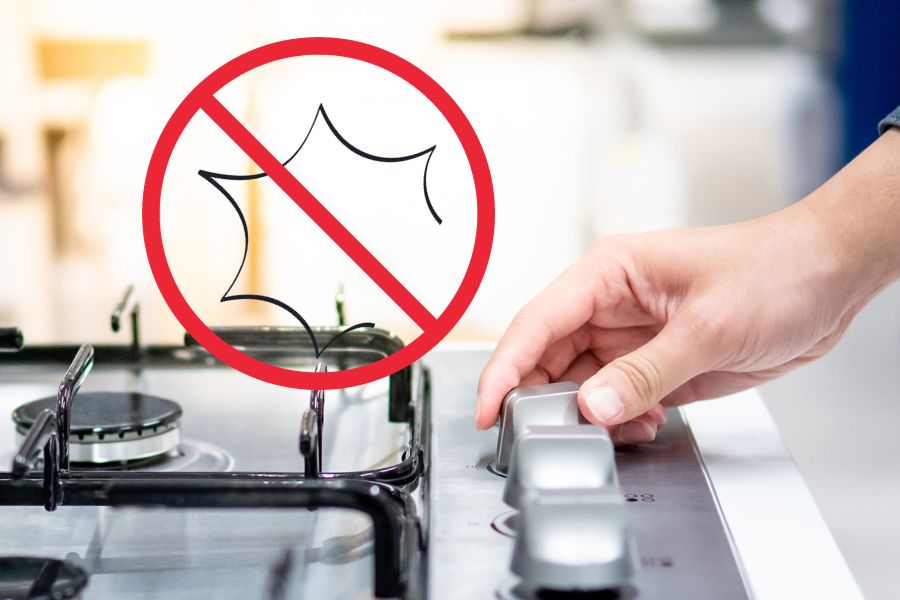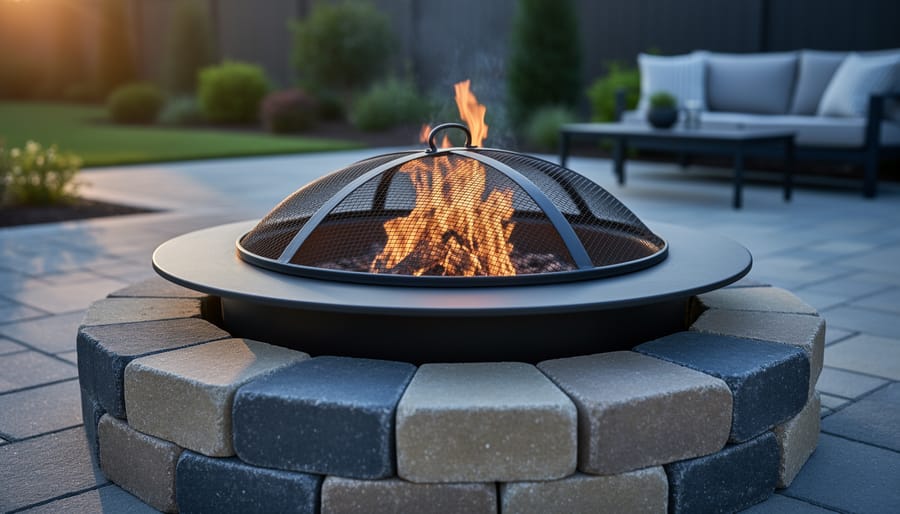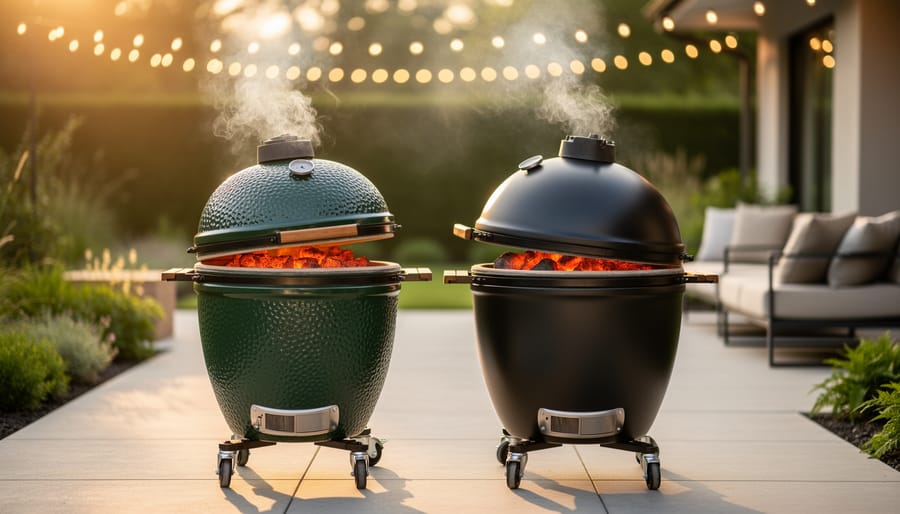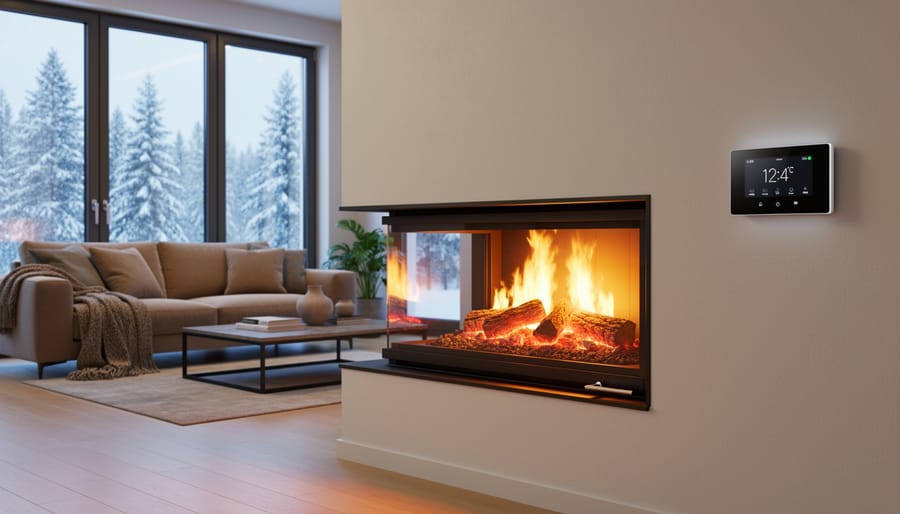Gas stoves are popular for many homeowners because of their efficiency and ease of use. They typically use natural gas or propane to heat the burners and provide a reliable source of heat for cooking.
Gas stoves often produce a clicking sound when turning the burners on or off. However, if your gas stove is not clicking, there may be a problem with the appliance that you must address as soon as possible.
The ignition system causes the clicking sound that typically accompanies gas stove use. When you turn on a burner, the gas is released, and the ignition system creates a spark to ignite the gas. This spark creates the clicking sound that you hear. If the ignition system is not working properly, the gas will not ignite, and the stove will not produce heat.
The clicking sound typically associated with a gas stove is an important indication of the proper functioning of the appliance. It is important to address the problem of a non-clicking gas stove as soon as possible, as improper ignition of gas can be dangerous.
A gas leak can cause fire or explosion. It is recommended to call a professional to check and fix the problem to ensure the safety and proper function of the stove.
Possible Causes for a Gas Stove Not Clicking
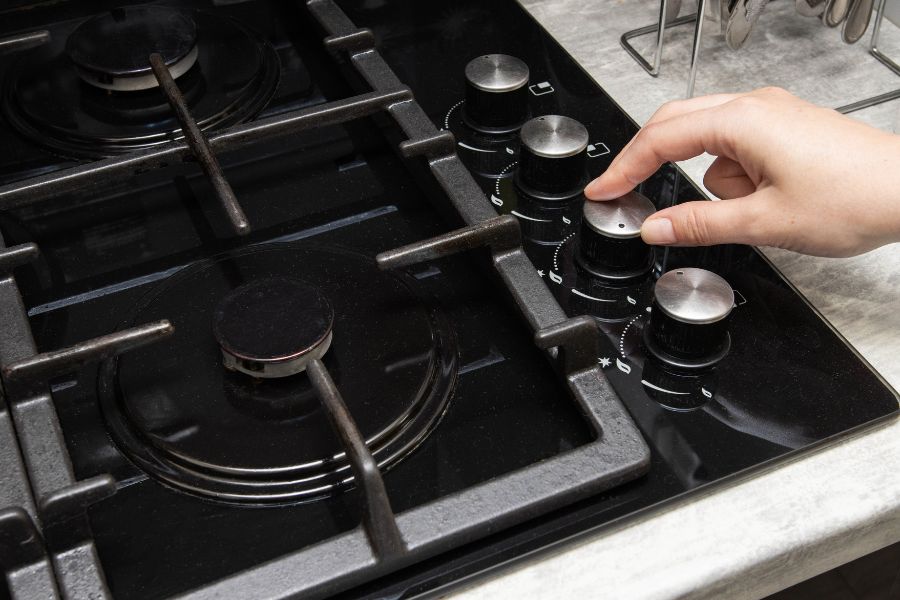
A gas stove is a popular choice for many homeowners because of its efficiency and ease of use. However, if your gas stove is not clicking, there may be a problem with the appliance that needs to be addressed.
The clicking sound is an important indication of the proper functioning of a gas stove. The stove will not produce heat and cannot cook food without a clicking sound.
Clogged Gas Line
A clogged gas line is one of the most common causes of a gas stove not clicking. The gas line is responsible for bringing gas to the stove; if it becomes clogged, it will not receive enough gas to ignite the burners.
This can happen for various reasons, such as debris or dirt getting into the gas line or a buildup of rust or corrosion. A leak in the line can also cause a clogged gas line, which can cause the gas pressure to drop and prevent the stove from receiving enough gas to ignite the burners.
Failed Igniter
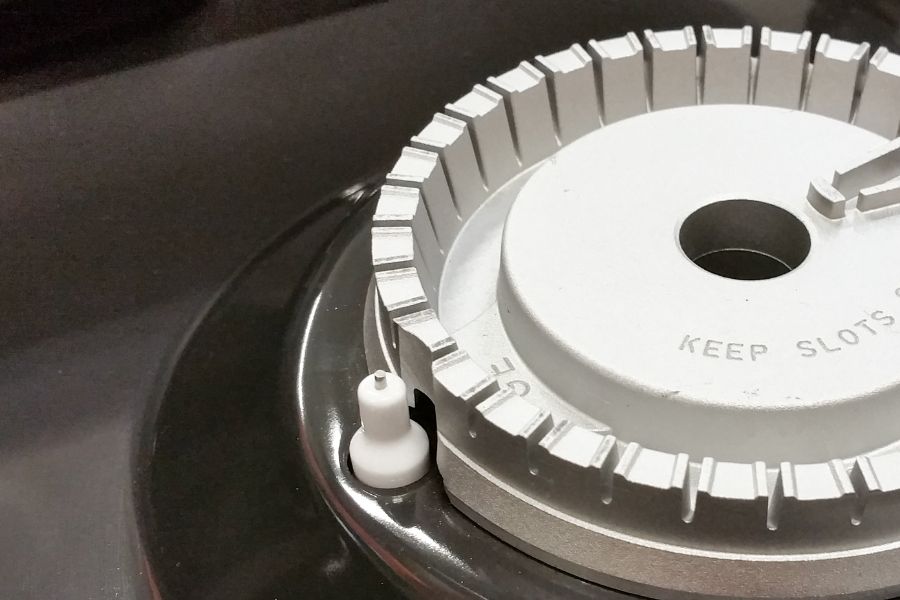
Another possible cause of a gas stove not clicking is a failed igniter. The igniter is responsible for creating the spark that ignites the gas; if it fails, the stove will not produce heat. The igniter can fail for various reasons, such as wear and tear, corrosion, or a malfunctioning ignition system.
The spark plug may be worn out or damaged, or the ignition system may be dirty or clogged. A lack of gas supply can also cause a failed igniter, preventing the stove from receiving enough gas to ignite the burners.
Defective Control Valve
A defective control valve is another possible cause of a gas stove not clicking. The control valve controls the gas flow to the burners; the stove will not produce heat if it is defective. The control valve can become defective for various reasons, such as wear and tear, corrosion, or a malfunctioning thermostat.
The valve could be clogged or damaged, or the thermostat may be faulty or improperly calibrated. A problem with the wiring can also cause a defective control valve, which can prevent the stove from receiving enough gas to ignite the burners.
Failed Safety Valve
A failed safety valve is another possible cause of a gas stove not clicking. The safety valve prevents gas leaks; the stove will not produce heat if it fails. The safety valve can fail for various reasons, such as wear and tear, corrosion, or a malfunctioning pressure relief valve.
The valve could be clogged or damaged, or the pressure relief valve may be faulty or improperly calibrated. A problem with the wiring can also cause a failed safety valve, which can prevent the stove from receiving enough gas to ignite the burners.
It is important to address the problem of a non-clicking gas stove as soon as possible, as improper ignition can be dangerous. A gas leak can cause fire or explosion. Call a professional to check and fix the problem to ensure the safety and proper function of the stove.
How to Troubleshoot a Gas Stove Not Clicking?
The clicking sound is an important indication of the proper functioning of a gas stove. The stove will not produce heat and cannot cook food without a clicking sound.
In this blog post, we will provide a step-by-step guide on how to troubleshoot a gas stove not clicking.
Step 1: Check the Gas Supply
The first step in troubleshooting a gas stove not clicking is to check the gas supply. Ensure the gas valve to the stove is turned on, and the gas line is not clogged. An interruption in the gas supply will prevent the burners from igniting, and the stove will not generate heat.
Step 2: Check the Ignition System
If the gas supply is not the problem, the next step is to check the ignition system. Ensure the spark plug is not worn out or damaged, and the ignition system is not dirty or clogged. If the ignition system is not working properly, the gas will not ignite, and the stove will not produce heat.
Step 3: Check the Thermostat
If the ignition system is not the problem, the next step is to check the thermostat. Ensure the thermostat is not malfunctioning, and the wiring is not damaged. If the thermostat is not working properly, the burners will not ignite, and the stove will not produce heat.
Step 4: Check the Safety Valve
If the thermostat is not the problem, the next step is to check the safety valve. Ensure the safety valve is not clogged or damaged, and the pressure relief valve is not faulty or improperly calibrated. If the safety valve is not working properly, the burners will not ignite, and the stove will not produce heat.
Step 5: Call a Professional
If you have checked all the above steps and can still not fix the problem, it is best to call a professional to diagnose and fix it. A licensed technician can diagnose the problem and repair or replace damaged parts.
It is important to address the problem of a non-clicking gas stove as soon as possible, as improper ignition can be dangerous. A gas leak can cause fire or explosion. By following these steps, you can troubleshoot and fix the problem yourself or have a professional do it.
Safety Precautions to Follow When Working with Gas Appliances
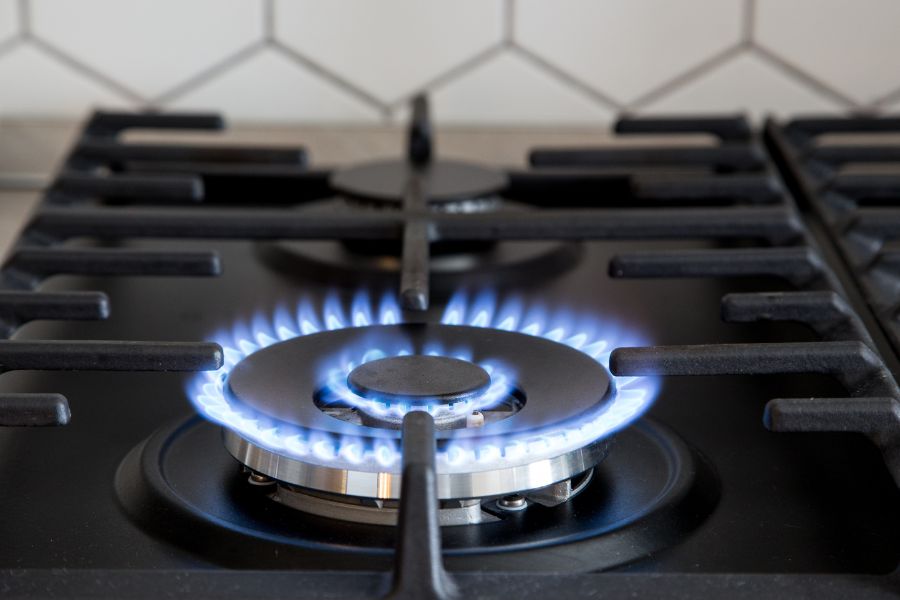
Following the safety precautions outlined here can reduce the risk of accidents and injuries and ensure that your gas appliances are working safely and efficiently.
- Always read the manufacturer’s instructions and warnings when using gas appliances.
- Regularly inspect and maintain gas appliances to ensure they are in good working condition. This includes cleaning burners, checking for leaks, and replacing worn or damaged parts.
- Use gas appliances in well-ventilated areas. Make sure that there is enough fresh air for the appliance to function properly and safely.
- Always use the correct fuel for the appliance, and never use a gas appliance not designed for the type of gas you are using.
- Always ensure that you properly connect gas appliances to a gas supply and that all connections are tight and secure.
- Never use matches, lighters, or open flames to check for gas leaks. Instead, use a soap and water solution to check for bubbles at connections, which indicate a leak.
- If you smell gas, immediately turn off the gas supply to the appliance, open windows, and doors to ventilate the area, and do not use any electrical switches or appliances until the gas has dissipated.
- Always keep flammable materials and liquids away from gas appliances and surrounding areas.
- Never use gas appliances in a damp area or near water.
- Have a professional inspect and service gas appliances at least once a year or as the manufacturer recommends.
- Have a Carbon Monoxide Detector installed in the area where you use your gas appliances.
- Keep the area around the gas appliances clear and uncluttered. This will make it easy to spot potential hazards and allow proper ventilation.
- Call the gas company or emergency services immediately and leave the house in case of a gas leak.
- Never tamper with safety devices such as pressure relief valves or thermocouples, as they are critical for the safe operation of gas appliances.
- Always turn off gas appliances when not in use, and never leave them running when you are away from home or sleeping.
Other Gas stove troubleshooting Guides:
- Why is My Gas Stove Making Noise When It’s Off?
- Why Gas Stove Won’t Light but Smell Gas?
- How to Fix Gas Stove Igniter Not Sparking After Cleaning?
Bottom line
Various factors can cause a gas stove not clicking, including a blocked gas line, a malfunctioning spark ignition system, or a faulty thermostat.
To troubleshoot the problem, it is important first to check the gas line to ensure there is no blockage and the gas supply is flowing properly. Next, check the spark ignition system to see if it is working properly, and if necessary, replace the spark electrode. If the problem persists, you may need to check the thermostat or other control components to see if they are working correctly.
It is important to note that if you cannot resolve the problem alone, it is best to seek professional help. Gas appliances can be dangerous if not handled properly, and a professional will have the knowledge and expertise to diagnose and repair any issues properly.
